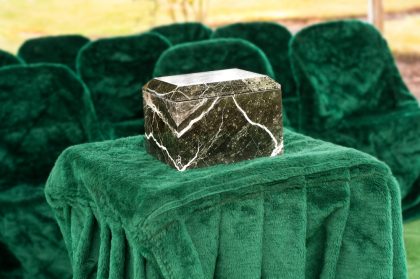What do we need from funerals?
Some people say the answer lies in rituals having certain psychological effects. Others say it’s about doing what humans have done in the past. Some point to religion, or community bonding, or ecology.
It all gets very involved. In order to help potential funeral buyers get a handle on what they might need, I plan in future posts to discuss ways different parties have answered the question, and domains of knowledge supporting or contradicting their opinions.
Without delving into controversies, let’s just list the related questions that arise when we ask the main question above.
-
What have people done with their dead in the past?
-
Why have people handled their burial needs differently at different times and in different places?
-
Considering our cultural background here in the United States, are some historical practices more informative than others in understanding our needs?
-
What is grief?
-
What are we supposed to do when we are grieving?
-
Can certain activities change grief, and should that be the goal?
-
What are rituals?
-
How do rituals work, for us as individuals, and socially?
-
How does human psychology fit in with all of this?
-
Could we, so to speak, strip away the historical clothing of our mourning traditions, and examine our minds and emotions in the face of death from a more clinical viewpoint?
-
In other words, what do we really need from funerals?
If you’re trying to decide between cremating or not cremating, or whether you need to bury the ashes, or what type of service you should have, knowing what funerals do would be helpful.
I think one of the main questions that actually comes up in people’s minds is: What are we supposed to do? Knowing the actual history of what people like us have done in the past can help with that difficult question.
We want to do what is right, both for the deceased and for the survivors. We don’t want to be disrespectful, or impair anyone’s grieving process. If we are deciding between spending moderate or large sums of money, we ought to understand what exactly we would be buying. We want to have a concept of what is proper, or extravagant, or chintzy, whether we should incur debt, or how this purchase stands alongside others we may have to make.
Finally—to switch gears—the questions should be of interest to people in the funeral businesses.
If you are trying to sell full-fledged services, with the viewings and processions, or if you have a cemetery or crematory, and you want to get an idea what the future might hold, taking an objective view of the products might be useful.
Maybe your business is doing well, or poorly, and you want to learn the right lesson from the experience. Maybe you are trying to decide on a capital investment, or whom to hire.
Maybe you’re planning to go down to the state house and talk to a legislator or commissioner, and you want to make sure you ask for the right kind of help.
You might work in a related endeavor such as a supplier company or a mortuary science college. I read somewhere that students in funeral schools don’t consider the history or psychology portions of the curriculum as important as the technical training in embalming and restoration. That’s probably good because they need to get those aspects down if they are going to get licensed to work at all. But eventually the big picture will likely come into view.
In all of these scenarios, it would be good to understand what customers really get from funeral and burial practices.
